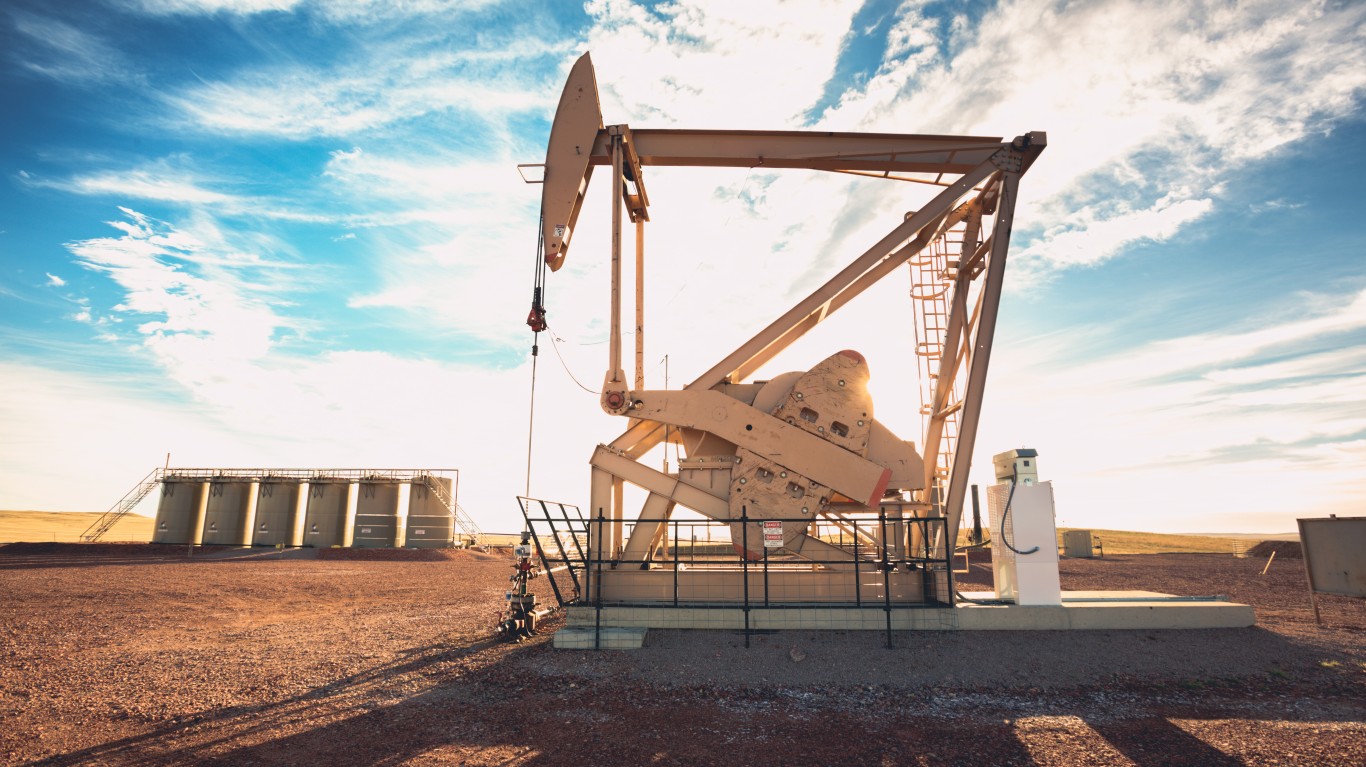Energy
Parsley Energy & Jagged Peak: Oil & Gas Merger Looks Bad Before the Ink Is Even Dry

Published:
Last Updated:

When companies make an acquisition they generally are doing to make the future base of the company stronger than it would be on its own without doing anything. That is a very broad generalization in reality, and sometimes companies make deals that the investing public ends up scratching its head over. The world of oil and gas remains in a state of flux and some deals are just not being as well received as in years past.
Parsley Energy, Inc. (NYSE: PE) and Jagged Peak Energy Inc. (NYSE: JAG) are finding that not all energy mergers are good for both parties. it’s very common for an acquiring company to see its shares trade lower on a merger announcement, but what about when the share price drop is by 10% and by the largest percentage drop in more than a year? And what about when the shares have already sold off handily from highs over the last year?
Parsley Energy has reached an agreement to acquire Jagged Peak in an all-stock transaction. The enterprise value of the deal was said to be about $2.27 billion after including the $625 million in Jagged Peak’s net debt. That said, it was also before Parsley Energy’s shares dropped by 10% on the news. Jagged Peak Energy shares were not even up on Monday afternoon, a sign that some shareholders will want to either ask management what the thought process or why on earth it wants to sell when it’s already down over 50% from this time a year ago.
In fairness, the public often gets merger wrong initially. Sometimes the public sees more value at a later date. And sometimes the mechanics of a merger just aren’t as clear. That said, a drop of 10% in the acquirer’s shares would rarely be viewed as a great post-merger reaction.
Formal merger terms call for Jagged Peak shareholders to receive a fixed exchange 0.447 shares Parsley common share per each common share of Jagged Peak. While the press release indicated that this represented $7.59 a value of based on Parsley’s closing price on October 11, 2019, that was before the large drop in Parsley on the news.
And as for a larger premium for long-term holders, it’s not even enough to notice. Jagged was down 1.2% at $6.74 on Monday afternoon, on about 9-times normal trading volume. That is against a 52-week high of $14.26 and is down from a high of $15.75 at the end of 2017. The press release included that the premium represented was 1.5% versus Jagged Peak’s 30-day volume weighted average price and a premium of 11.2% versus Jagged Peak’s closing price on October 11, 2019.
The transaction, which is expected to close in the first quarter of 2020, has been unanimously approved by each company’s board of directors. Following the close of the transaction, Parsley shareholders will own approximately 77% of the combined company, and Jagged Peak shareholders will own approximately 23% of the combined company, in each case on a fully diluted basis. The all-stock transaction is intended to be tax-free to Jagged Peak shareholders.
The press release showed the key areas and size would look like once completed:
Parsley possesses an institutional familiarity with Jagged Peak’s Delaware Basin assets, with the majority of the acreage directly offsetting Parsley’s legacy position. Furthermore, Jagged Peak’s high-margin, oil-weighted asset base will integrate smoothly into Parsley’s near-term development program. On a pro forma basis, Parsley will have approximately 267,000 net acres in the Permian, comprised of 147,000 net acres in the Midland Basin and a highly contiguous 120,000 net acre footprint in the Delaware Basin… Parsley expects the low-premium transaction to be immediately accretive to key metrics in 2020, including: cash flow per share, free cash flow per share, cash return on capital invested, and net asset value.
Parsley Energy shares were last seen trading down 10% at $15.27 on Monday afternoon, and the 22.4 million shares with about 90 minutes of trading was nearing 5-times normal volume. Its 52-week trading range is $13.72 to $29.88 and its consensus analyst target price was $24.80.
The companies can try to blame a drop in oil, but that was just 2% to $53.59 on Nymex crude.
Thank you for reading! Have some feedback for us?
Contact the 24/7 Wall St. editorial team.